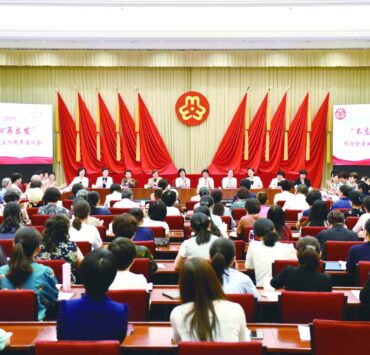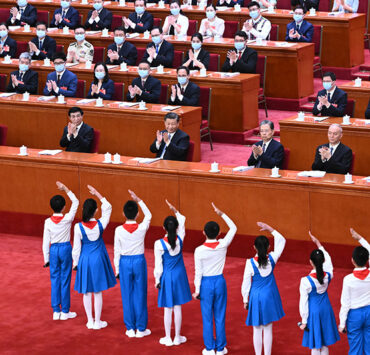
Par Camille Brugier
Panda, Rice Alcohol and PCC
Panda, Rice Alcohol and PCC is a column of Camille Brugier, aimed at introducing scientific articles to a wider audience. His publications can be found on his thread Twitter.
Even though China is still the 45th most corrupt country in the world selon Transparency International, She still progressed 10 places in 10 ans. 2013, it was the start of Xi Jinping's tenure, who has led and is leading large-scale anti-corruption campaigns. These campaigns are often seen as a surefire way for Xi to put his detractors out of harm's way. Beyond the "Tigers" (central government and provincial officials) she tries to aim, what impact do these campaigns have on the “flies”, local government officials ?
For many, the efficiency of a government rhymes with strong anti-corruption policies. This also applies to democracies. It seems common sense that if one is not busy embezzling money, to recover “commissions” or return a favor, you can focus on your work and your mission in the name of the general interest. Elementary ? Not according to Dr. H. Wang !
The academic shows that Xi's anti-corruption campaigns carried out between 2012 et 2017 have made the civil servants of the Chinese provinces more hesitant to carry out their work. As usual, Xi made it big : his anti-corruption campaigns are long (5 ans), massive (2900 visits to the 2698 chinese townships) and intense (39 average days per inspection). For Wang, these campaigns have collateral effects : they kill in the bud the initiatives taken by civil servants, who would be too afraid to deviate from the very strict rules put in place by the regime. This is the “chilling effect”.
Anyone who has ever worked in an administration knows that there are also many things that "move the files forward" that are not found in manuals, nor in the civil service code – go to the next office to see that the paper has been signed, have a coffee to find out what is being decided at 5e stage, use procedure A instead of B to save yourself paperwork…
Civil servants with integrity, who arrange a few rules to carry out their missions (but without private gain, so without corruption) are therefore "cooled". Wang observes that after inspections from Beijing or the provinces, the activity of civil servants drops the following month, and remains below normal again the following year. The “chilling effect” can be explained in two ways : 1/ formal rules complicate work life (a bit like the works of Asterix) and slow down civil servants 2/bureaucrats are encouraged to work less.
In sum, it is better to belong to the soft underbelly of civil servants who work... but do not do more. This phenomenon, que la presse chinoise nomme dare not do things, is portrayed in Chinese TV series, and is known in the corridors of the provincial administrations by this little phrase : Do less work, make fewer mistakes; do no work, make no mistakes.”(Do less and make less mistakes、not doing well).
Contrary to popular belief, China is an authoritarian but also decen-tra-li-se country. This article illustrates in the background the complex relations between Beijing and the 31 chinese provinces, who are held by the goatee to both gain control/autonomy, while ensuring that the "flies" work to advance China and make a good impression on their constituents. Like what, bureaucracy is much more political (and fascinating) than is generally thought.
Reference:
Wang, Eric H. (2022), “Frightened Mandarins: The Adverse Effects of Fighting Corruption on Local Bureaucracy”, Comparative Political Studies, Vol. 55(11), pp. 1807-1843.



